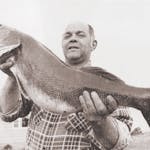There was nothing ambiguous about the distress call from a campsite full of Girl Scouts who experienced lightning last weekend deep inside the Boundary Waters Canoe Area Wilderness (BWCA).
Two of the six scouts were in pain and one of them had lost all sensation in her left leg. She felt tightening in her jaw and rated her pain an eight on a scale of one to 10.
Those clarifying details, recorded in the 911 command log kept by the Lake County Sheriff's Office and described by an official who helped field the original call, drew an apology Friday from the Girl Scouts regional spokeswoman, Nancy McMullen. She initially described the situation in far milder terms by saying that some girls merely felt "tingling" and no one was injured.
Lake County Sheriff Kerry Johnson said Friday that McMullen's media interviews caused some people to wonder if authorities overreacted by launching a dramatic, midnight run through a thunderstorm to evacuate the scouts. The rescue sortie, performed over a period of seven hours by motorboats and canoes, ended at 4 a.m. with the group's return to a waiting ambulance parked on the shore of Moose Lake northeast of Ely.
"How the Girl Scouts reported it after the fact was kind of shocking," Johnson said. "We had to go. We needed to go."
McMullen, director of marketing, communications and customer care for the Waite Park regional office of the Lakes and Pines Council of Girl Scouts, told reporters on July 27 that there were no injuries but that the group's guide suspected some girls "might have experienced ground current" and that two of the scouts reported feeling "tingling."
She updated the Girl Scout version of events on Friday, writing in a statement that two of the six girls "were reporting that they may have felt a ground current because their feet felt numbness and tingling and one with lower jaw pain." The update said the group witnessed lightning hitting ground in their camp early Friday evening.
But the update made no mention of the loss of feeling in one of the girl's legs as stated in the command log. Nor did it mention that a second girl complained of knee and foot pain, as noted in the command log.
Capt. Rick Slatten of the St. Louis County Rescue Squad said the descriptions stoked concern that conditions of the injured could worsen due to possible internal injuries, he said.
"You had girls who experienced electrical current," Slatten said. "We're going to move hell and high water to get in there and get them taken care of."
McMullen said she was unaware of the initial descriptions of injury. She acknowledged that one of the girls checked by the ambulance crew was taken to the hospital for further testing before being released.
"I apologize if anyone thought we were trying to downplay it," McMullen said.
The six teenagers were from the Chicago area. They were accompanied by an adult guide, a guide in training and a camp counselor, McMullen said.
John Van Dreese, general manager of the Northern Tier High Adventure Boy Scout camp on Moose Lake, said the guide for the endangered Girl Scout group was equipped with a two-way radio for a private system monitored 24 hours a day at Northern Tier. The guide was a neighbor to Northern Tier, from the Girl Scout's Northern Lakes Canoe Base.
Van Dreese said he was working at Northern Tier when the guide's distress call came in. She was monitoring the vital signs of the affected Girl Scouts and the symptoms she described were serious, he said.
"That's a no-brainer," he said in an interview. He advised the radio operator to make a 911 call to the sheriff's office in Two Harbors. The dispatcher immediately requested rescue help from St. Louis County.
Van Dreese and Slatten said they've both worked on lightning strikes where the condition of injured people quickly worsens. "It's just not the kind of thing to mess around with," Van Dreese said.



